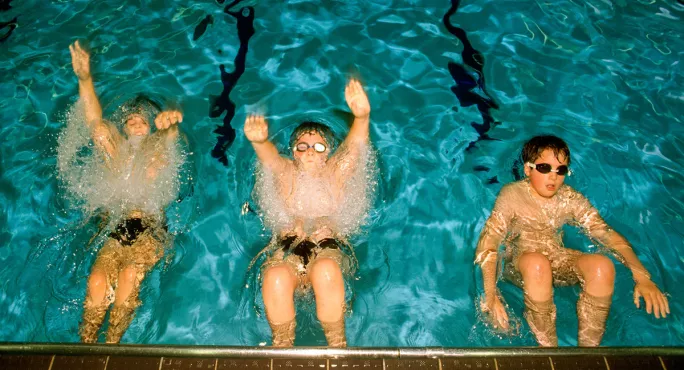Ofsted: Many schools aren’t matching PE curriculum ‘ambition’

Many schools are failing to meet the breadth and depth of the national curriculum, according to the latest Ofsted report on the quality of PE education in primary and secondary schools in England.
The report, released today, concluded that schools that do not meet the ambition of the national curriculum narrow their pupils’ experience of PE.
Ofsted inspectors found only a small number of schools that have a clearly defined and broad PE curriculum.
The inspectorate’s new PE subject review said schools should include “carefully sequenced and taught” swimming and water safety lessons in primary schools, and outdoor adventurous activities (OAAs) and dance in primary and secondary schools.
- PE: Government blamed for PE lesson decline
- Ofsted shake-up: When is your school likely to be inspected?
- School sport action plan: Schools to be measured on girls’ access to PE
The review comes after the Department for Education (DfE) updated its School Sport and Activity Action Plan in July, which called for an increased focus on competitive opportunities, among other factors, as part of a two-year plan.
The inspectorate visited 25 primary schools and 25 secondary schools between November 2022 and June 2023 to evaluate the strengths and areas for development in the subject.
Here are some key findings from the report:
Curriculum in many schools is unbalanced
Dance and OAAs were selected as two specific areas of PE that needed to be developed after limited opportunities were identified in some schools because staff lacked competence and confidence in these areas.
In two-thirds of the schools inspected, dance is not taught to all pupils or the content being taught is not well organised.
In a further three-quarters of schools, OAAs are either not taught effectively or not taught at all.
This is in contrast to football, which is in nearly every curriculum and includes the teaching of attack and defence.
Emphasis needed on developing competence
Ofsted found that some schools “lacked coherence” in their curriculums because of plans to include certain activities and sports, rather than focusing on developing the skills pupils needed over time to achieve the curriculum goals.
Instead, the report says that pupils should “practise, refine and revisit previous content” before learning new or more complex skills, in order to cement their learning and build confidence.
This might mean reducing the number of physical activities and sports across the year in some schools.
Quality of swimming provision varied considerably
Swimming was another area of the curriculum that Ofsted identified for improvement, although it recognised that this was in part down to the cost of transport, access to swimming pools and challenges owing to Covid-19.
The location and availability of swimming facilities were also limiting factors in the design of curriculums for swimming and water safety, meaning the time dedicated to this learning varied considerably across schools.
In about half of schools, leaders did not have clear oversight of what was taught or how it was taught. They did not know what pupils or groups of pupils were particularly struggling with, and so they did not always know how to adjust or improve their provision.
The report also found that only a few schools had used the PE and sport premium to pay for top-up swimming lessons for those pupils who did not meet the national curriculum requirements after their PE lesson time.
Pupils with SEND need more support
The inspectorate identified that all school staff discussed the importance of an ambitious curriculum for pupils with special educational needs or disabilities (SEND), and put in place the necessary support and adaptations for them to achieve.
However, the curriculum did not always make clear what was most important for pupils with SEND to know and be able to do.
For children with SEND, the quality of support they receive to enable them to participate fully is often not precise enough, despite positive attitudes to inclusion.
This was owing to staff members’ lack of subject and pedagogical content knowledge to adapt their teaching, rather than a lack of commitment to developing all pupils’ competence.
Responding to Ofsted’s findings, Steve Caldecott, deputy chief executive of the Association for Physical Education, said: “Schools have very tight budgets and teachers/leaders have limited time available to instigate changes, which is why a focused approach is important.
“As physical education is the only opportunity for many pupils to develop the skills required to access learning, a key focus will be on helping schools to develop a well-constructed, needs-driven curriculum which at least matches the aims of the national curriculum so that pupils can lead healthy active lives.”
You need a Tes subscription to read this article
Subscribe now to read this article and get other subscriber-only content:
- Unlimited access to all Tes magazine content
- Exclusive subscriber-only stories
- Award-winning email newsletters
Already a subscriber? Log in
You need a subscription to read this article
Subscribe now to read this article and get other subscriber-only content, including:
- Unlimited access to all Tes magazine content
- Exclusive subscriber-only stories
- Award-winning email newsletters
topics in this article



